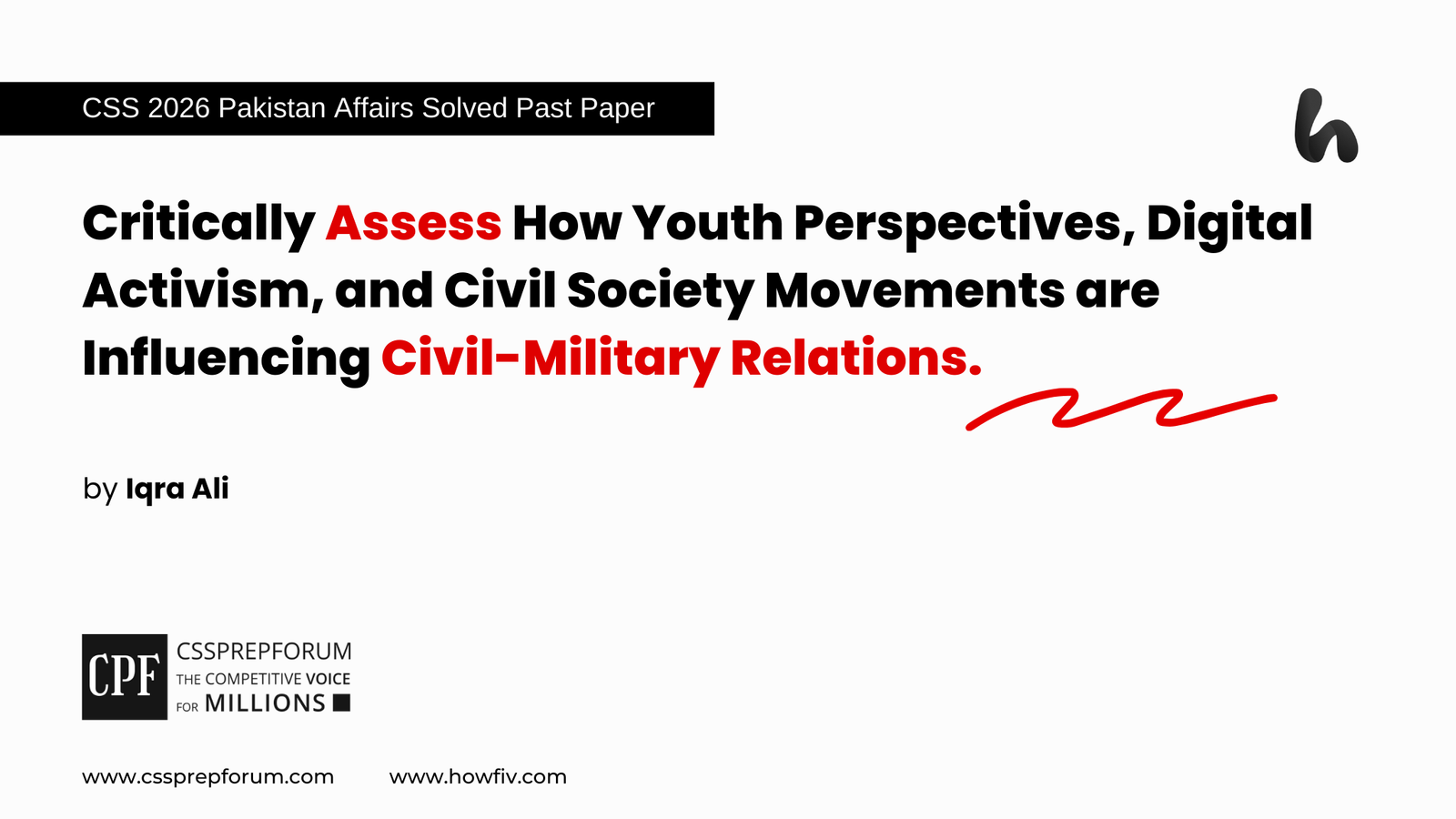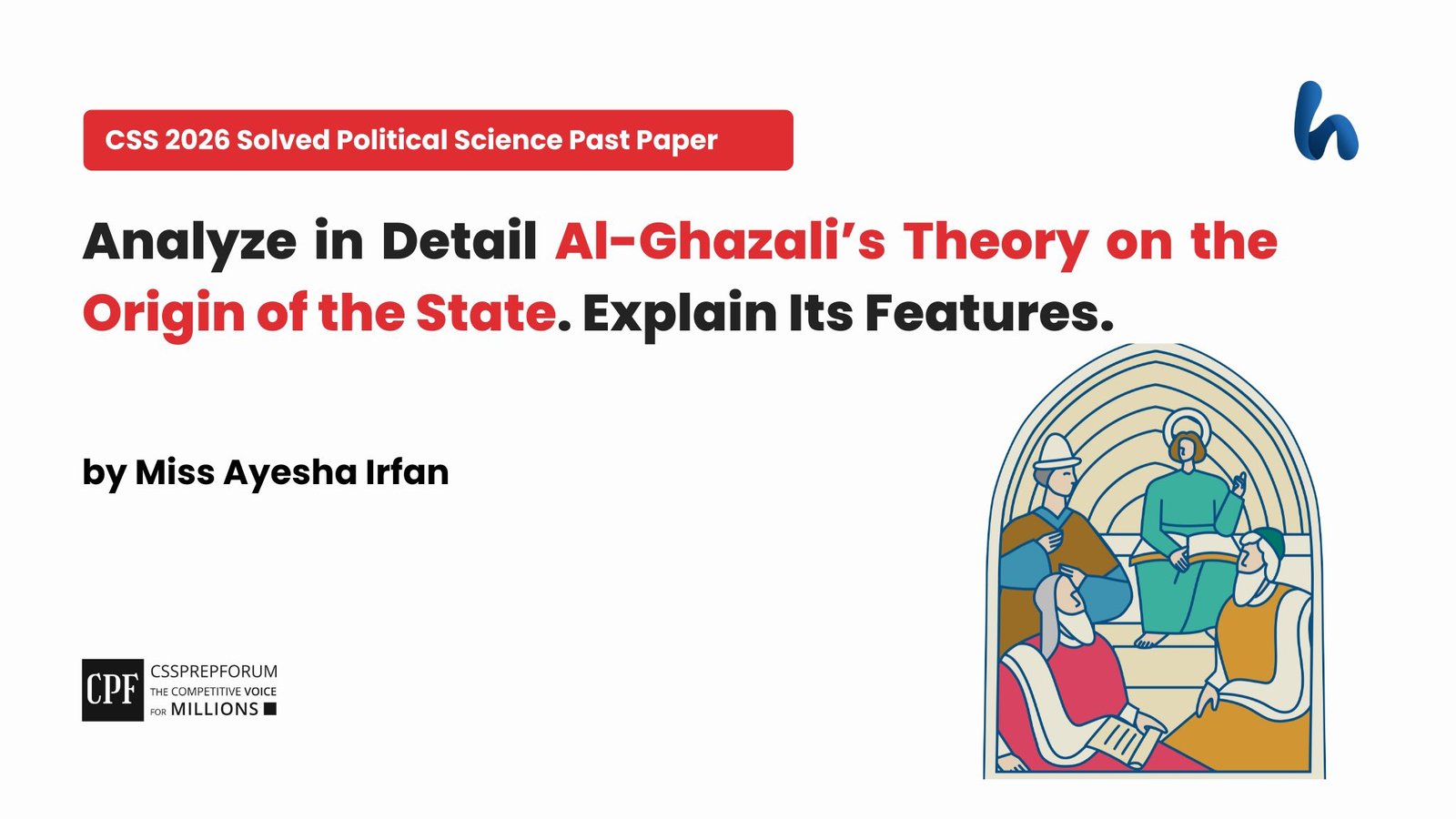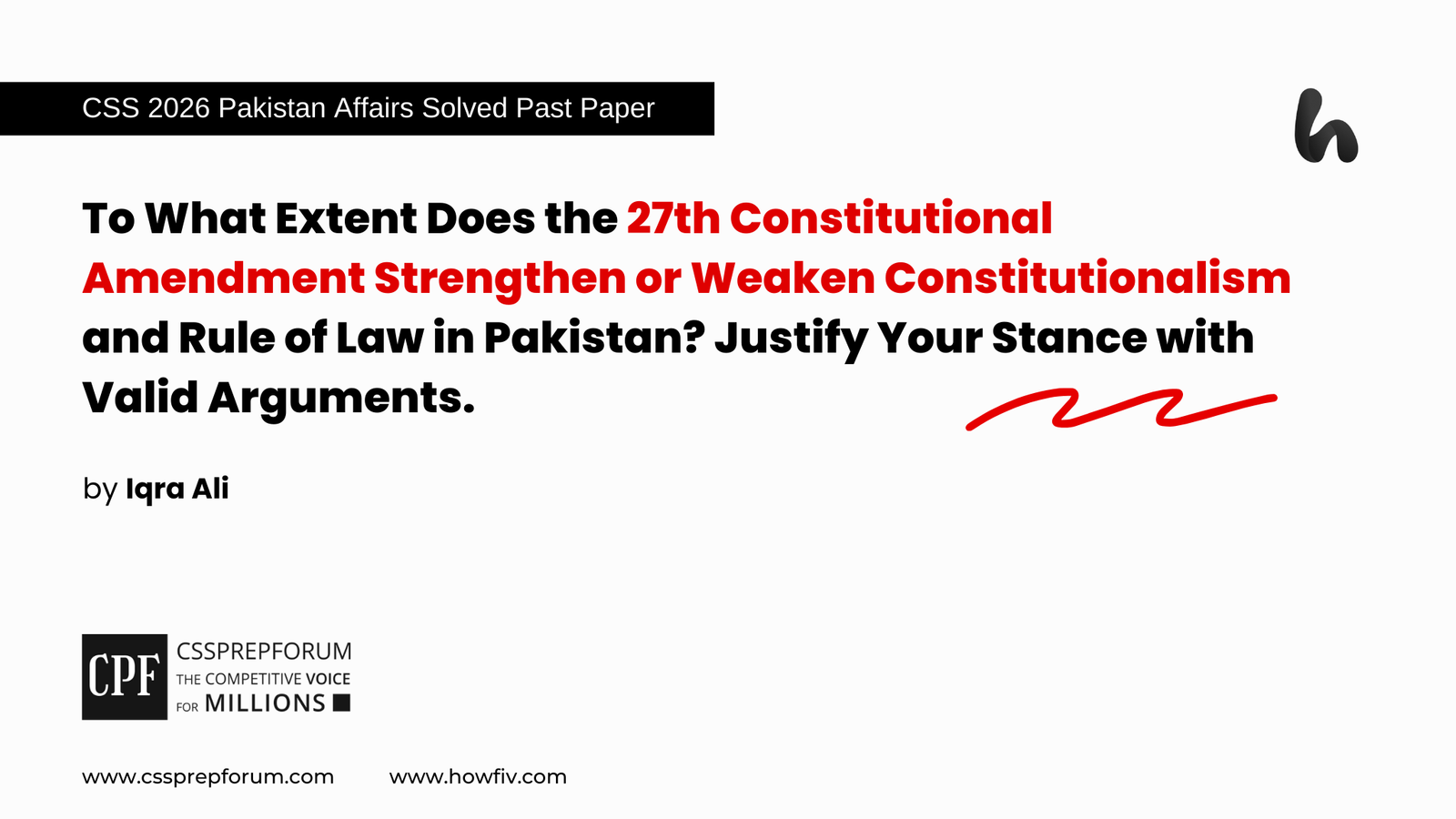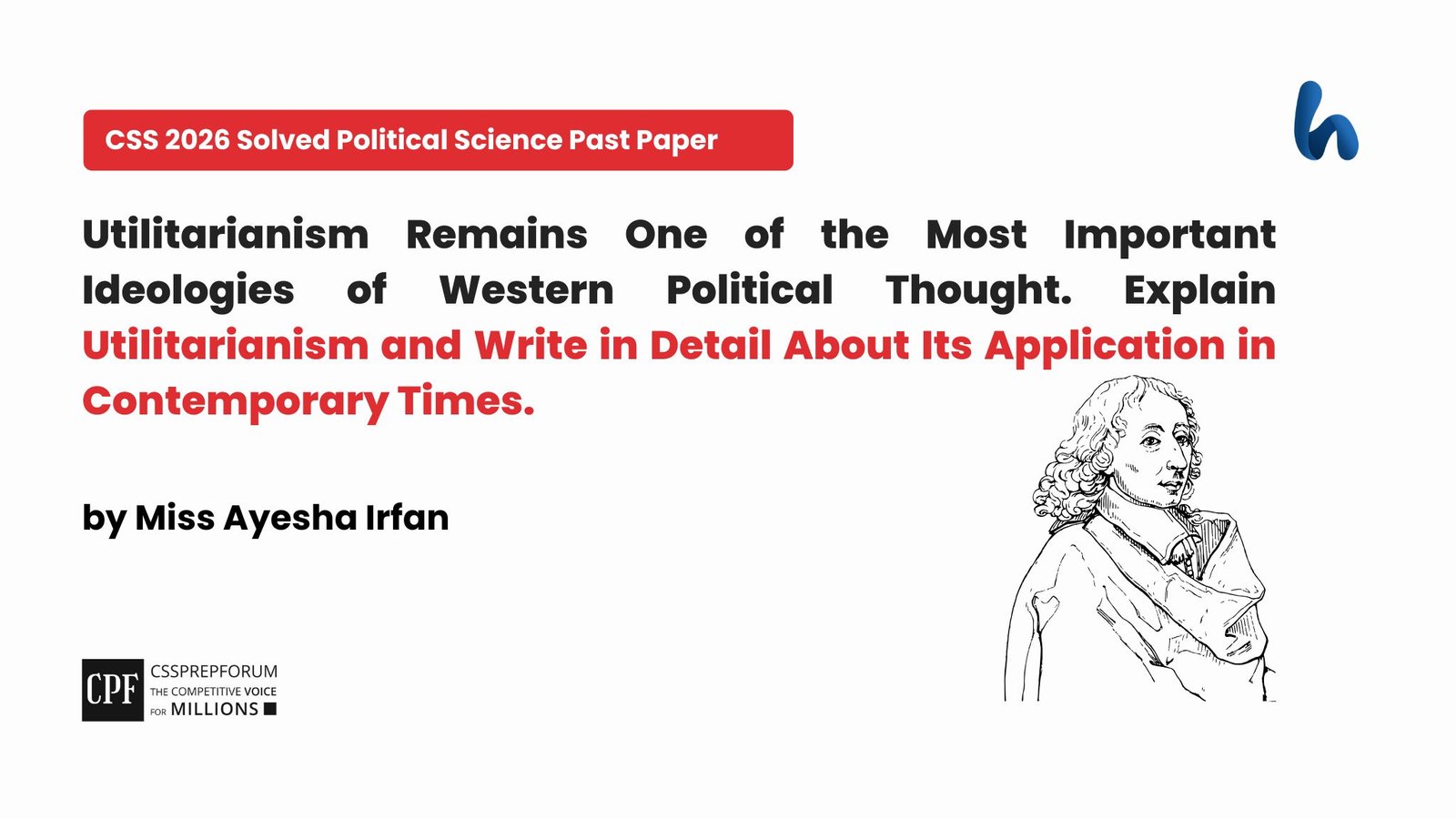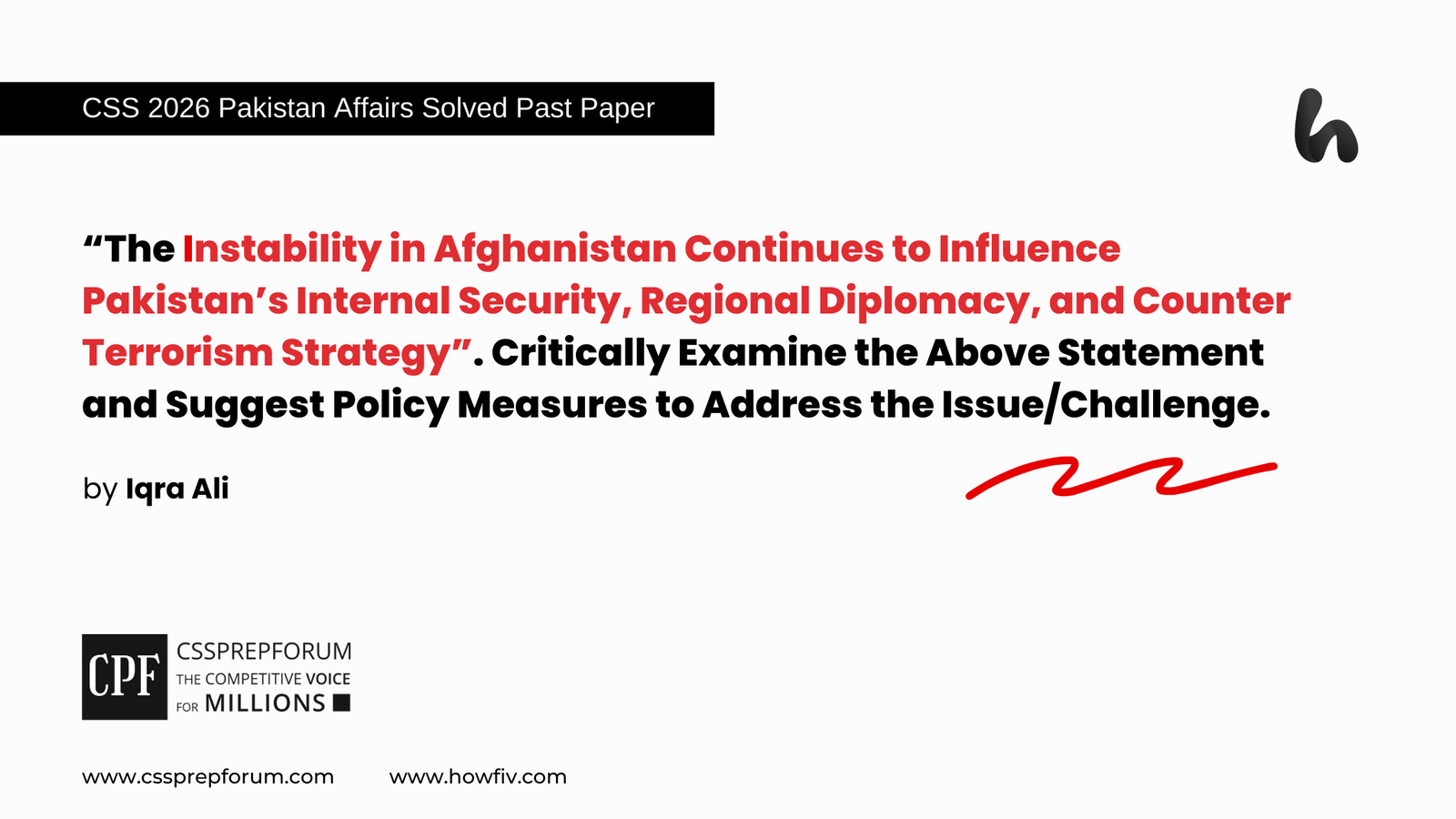CSS Solved Gender Studies Past Papers | Discuss in detail the Gender Critiqued of Structural Adjustment Policies (SAPs)
The following question of Gender Studies is attempted on the same pattern, taught by Sir to his students, scoring the highest marks in compulsory subjects for years. This solved past paper question is uploaded to help aspirants understand how to crack a topic or question, how to write relevantly, what coherence is, and how to include and connect ideas, opinions, and suggestions to score the maximum.

Question Breakdown
The examiner is asking about the critique of feminist theory on Structural Adjustment Policies SAPs. The answer explains how the loan-providing bodies impose severe conditions to grant loans, thus affecting the economic role of women in developing countries.
Outline
1- Introduction
2- What are Structural Adjustment Policies SAPs?
- ✓ The imposition of harsh conditions on structural reforms, directly affecting women to get the loan
3- Feminist Critique of Structural Adjustment policies SAPs
- ✓ Neo-feminists believe that women are deprived of equal opportunities because of the male-dominant society enriched with patriarchy
4- Invisibility of Women in IMF
- ✓ Lesser number of women in IMF impacts the issues and their discussions about women-related issues
5- Effects of Structural Adjustment Policies SAPs on Women in developing countries
- ✓ Increased Gender Income Disparity
- For frontline operational roles, the overall gender income disparity amounts to 11 per cent, for professional and technical roles it triples to 31 per cent, for senior expert and leadership roles it expands to a further 38 per cent.
- ✓ Effects on Education and Health of Women
- Closed by 95 per cent but increasing health effects in African states- WEF
- ✓ Increased stress level and burden on women
- Data by Hologic reported stress was 4 percent higher in women than men because of a lack of economic opportunities and financial burden.
6- Conclusion

Answer to the Question
Introduction
Women, no doubt, are the real shock absorbers of adjustment efforts made by the country in various social roles, such as workers, mothers, wives, consumers and even producers. It is the woman and its gender-specific role that goes largely unseen by the international community. Due to such ‘invisibility,’ women face the brunt of the burden when developing countries receive international aid with tons of conditionalities imposed, thus, affecting women directly. The following answer analyzes the consequences of Structural Adjustment Policies SAPs put in place by IMF in developing countries on women.
What are Structural Adjustment Policies SAPs?
IMF is the international loan provider that aims to provide money to developing countries in times of balance of payment crisis. Moreover, it provides money to those states who are highly indebted and unable to return loans. Thus, it grants to aid in the form of money to help build their international reserves, stabilize currencies, boost imports and impose conditions for stable economic growth.
The type of loan provided by the IMF is called a ‘Poverty Reduction and Growth Facility (PRGF) loan. The loan’s central objective is to reduce poverty in the country by providing loans along with severe conditions that the state must impose to return back the loan.
In order to receive a loan from IMF, it is mandatory to impose IMF-specific conditionalities in the country. Structural Adjustment Policies SAPs are significant changes in economic policies to ensure fiscal stability. Failure to do so might lead to renegotiation or even cancellation of the program. The goal of such conditionalities is more or less the same that is to promote a Washington-based consensus of privatization and liberalization.
All these principles aim to flourish the private market in the country to stabilize the economy. Also, it is directly linked to the country’s overall GDP so that the indebted country soon becomes able to pay off the debt.
IMF delicately calls the benchmarks to be set in order to obtain funding performance criteria (Pes). There are two types of criteria that the IMF wants to be fulfilled for loans to be disbursed.

Feminists critiqued SAPs
Feminism requires women to be seen in the world as well as focuses to address women-related issues at the maximum level. It specifically seeks justice for women from male-dominant societies and analyzes societal norms and relations between men and women.
Neo-feminism is one branch of feminism that deals with the role of women in international political economy and is thus a critique to Structural Adjustment Policies. Neo-feminists believe that women are deprived of equal opportunities because of the male-dominant society enriched with patriarchy. These are the main causes as to why women are rendered invisible in the international economy, and their issues are not addressed. This theory also claims that women are objectified while conducting research for economic betterment and related projects.

E. Fuat Keyman says that women are viewed as three destructive forms in economic research such as cultural, discursive, and scientific objects. However, they are never viewed as human beings and from the lens of providing them with equal economic opportunity, thus ignoring the integral part it plays in society.
The invisibility of Women at IMF
Other than ignoring the chance of providing equal opportunities to women, the IMF, loan provides itself is found in troubled waters because of a meagre number of women working there. The monetary body underrepresents women, with only three senior women officials out of thirty. Also, out of twenty-four former board members, only two are women. The lesser number of women in the IMF also impacts women-related issues and their discussions. IMP, Interoperable Master Format, the media wing of IMF, mentions only 135 articles with the word ‘woman’ back in 2020.
Effects of SAPs on Women in the developing world
There are several effects of Structural Adjustments Policies on the role and economic status of women, such as:
- Increased Gender Income Disparity
According to the analysis of the World Economic Forum and its report of 2022, the most salient feature contributing to gender-based wealth is the increased income disparity between women and men. For frontline operational roles, the overall gender income disparity amounts to 11 percent, for professional and technical roles it triples to 31 percent, for senior expert and leadership roles it expands to further 38 percent.
- Effects on Education and Health of Women
Across the 146 countries covered by the Global Gender Index 2022, the Health and Survival gender gap has closed by 95 per cent. However, the providence of health and education opportunities have also decreased, especially in the African states, because of cut in subsidies for the health and education sector for women.
- Increased Stress level and Burden on Women
Based on data by Hologic, the report finds that between 2021 and 2022, reported stress was 4 per cent higher in women than men because of a lack of economic opportunities and financial burden. This adds to a growing global health burden of mental and emotional disorders, which is disproportionality affecting women’s health and well-being.
Conclusion
The Structural Adjustment Policies SAPs imposed by the IMF in the name of loans affect women-related social programs. Moreover, neo-feminism says that women are considered mere objects and thus ignore the integral role they play in society. In fact, IMF-related conditionalities are always projected towards women-related projects, thus causing various issues such as increased gender income, effects on health and education and increased stress levels of women.
CSS Solved Past Papers’ Essays
Looking for the last ten years of CSS and PMS Solved Essays and want to know how Sir Kazim’s students write and score the highest marks in the essays’ papers? Then, click on the CSS Solved Essays to start reading them.
CSS Solved Essays

CSS Solved General Science & Ability Past Papers
Want to read the last ten years’ General Science & Ability Solved Past Papers to learn how to attempt them and to score high? Let’s click on the link below to read them all freely. All past papers have been solved by Miss Iqra Ali & Dr Nishat Baloch, Pakistan’s top CSS GSA coach having the highest score of their students.
General Science & Ability Solved Past Papers
CSS Solved Pakistan Affairs Past Papers
Want to read CSS Pakistan Affairs Solved Past Papers and learn how to attempt them to score high? Let’s click on the link below to read them all freely. All past papers’ questions have been attempted by Sir Kazim’s students, who scored the highest in the subject.
CSS Solved Pakistan Affairs
CSS Solved International Relations’ Past Papers
Have you opted for International Relations in the CSS examination and want to score above 150? Then, click on the CSS Solved International Relations’ Past Papers by Miss Abeera Fatima, the top IR scorer and the best IR coach in Pakistan.
CSS Solved International Relations Past Papers
Articles Might Interest You!
The following are some of the most important articles for CSS and PMS aspirants. Click on any to start reading.


